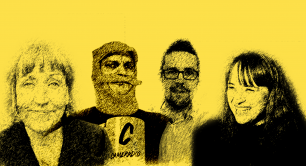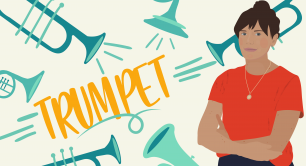Grieving from home: the online community of mourners who listen to hear, not to fix
With UK charities facing “soaring demand” for grief counselling due to Covid-19, many mourners are turning to each other for support online. Charlie Ogilvie, a Social Innovation Fellow at Year Here, explores the work of The Loss Project, a social enterprise whose mission is to challenge the stigma surrounding loss by helping people to share experiences in their local communities.
‘Normal’ life has been put on hold. But what about ‘normal’ death? Few people have been left untouched by the loss of life, and livelihood, during the pandemic so far. Lockdown and government guidance on social distancing, including drastic restrictions on public gatherings from funerals to celebrations of life, have significantly changed our access to traditional grieving rituals. And we are feeling the effects.
The Loss Project, a social enterprise founded in 2019, supports people dealing with grief and loss. Of health. Of loved ones. Of livelihoods. Of relationships. Its mission is to challenge the stigma and taboo surrounding loss through connecting people in their local communities to share their experiences of grief, loss and trauma.
“Sometimes there is this belief that for something to be supportive it has to be professional,” says Steph Turner, facilitator at The Loss Project, who previously worked in the hospice sector. “The professional services are absolutely needed. But there is also so much richness in the informal. At the hospice [where I worked] so much support happened in the cafe where people bumped into each other, chatted and made friends. They were able to meet people who were going through similar things. It’s the informal spaces that are a lot harder to access now. There are so many people who just don’t know how to talk about grief, or are worried about upsetting other people or being a burden.”
Early-on in lockdown, to meet this need, The Loss Project partnered with Camerados – a social movement of people who are ‘halfway between a stranger and a friend’ – to run regular loss-themed ‘Spoon Rooms’. ‘The Spoon Room’, standing in for the face-to-face ‘Public Living Room’, is an online forum where individuals come together to listen to – not fix – each other. Camerados Director Maff Potts describes it as “people just alongside each other, no fixing, no agenda, just there”. The ‘general’ sessions take place weekly, and the loss-themed rooms, facilitated by The Loss Project, monthly. All participants come equipped with a wooden spoon – a symbol of their intention to speak and be heard. “When you want to speak you wave your spoon,” says The Loss Project's founder and director, Carly Attridge. Many of the spoons that appear on the calls are intricately decorated with faces, ‘hair’ and accessories. Some even act as ‘cheerleaders’ to their makers – who benefit from sharing the spotlight.
I’ve connected with a bunch of people who I’ve never even met and now feel more like family than strangers
Cat Duncan-Rees, who lost her father in early March, has found solace in both the general and the loss-themed Spoon Rooms. “It was helpful to join a group of people knowing that I didn’t have to pretend. I could just be. The Spoon Room was one of the first online forums I threw myself into and it helped give me the confidence to engage in other settings online,” she says. “I’ve connected with a bunch of people who I’ve never even met and now feel more like family than strangers.”
The weekend before her Dad’s funeral, Cat attended her first session with a group of fellow ‘spooners’ united by dealing with loss in unprecedented circumstances. At this point many of the 200 people who had planned to attend the funeral were making their apologies because they were either shielding, or they knew that they would find it too hard to socially distance. “I didn’t sit and bawl my eyes out the whole time,” she says. “Instead I came away feeling like people had invested something of themselves into that space.” Although semi-facilitated, the Spoon Rooms are largely community-led. “There is no pressure to talk about anything in particular. There was one loss-themed session where I don’t think I even talked about my Dad.”
In addition to the Spoon Rooms, The Loss Project offers creative programmes which make space for people to unlock and process their grief, while connecting with others. From July until September, The Loss Project is running a series of workshops, from poetry, to spoken word and artistic memorialisation, relating to all kinds of loss.
We need to amplify the voices of people who have been bereaved and help them find different ways to process it... Sometimes it’s too scary to say things out loud
“We need to amplify the voices of people who have been bereaved and help them find different ways to process it. We also want to provide an accessible avenue for those around them to understand and feel more open and comfortable talking about loss,” says Carly. “I’m a big believer in creating different spaces for us to explore feelings we might struggle to put into words. Sometimes it’s too scary to say things out loud,” she explains, and that’s one of the reasons that The Loss Project offers sessions focused on “different ways of connecting”, like drawing, painting and making.
Visit The Loss Project’s website to find out more and sign-up to join in with their creative workshops.
Join the next Camerados x The Loss Project Spoon Room on Friday 31st July.
At Pioneers Post we're working hard to provide the most up-to-date news and resources to help social businesses and impact investors share their experiences and get through the Covid-19 crisis. But we need your support to continue. As a social enterprise ourselves, Pioneers Post relies on paid subscriptions and partnerships to sustain our purpose-led journalism – so if you think it's worth having an independent, mission-driven, specialist media platform for the impact movement, please click here to subscribe.



